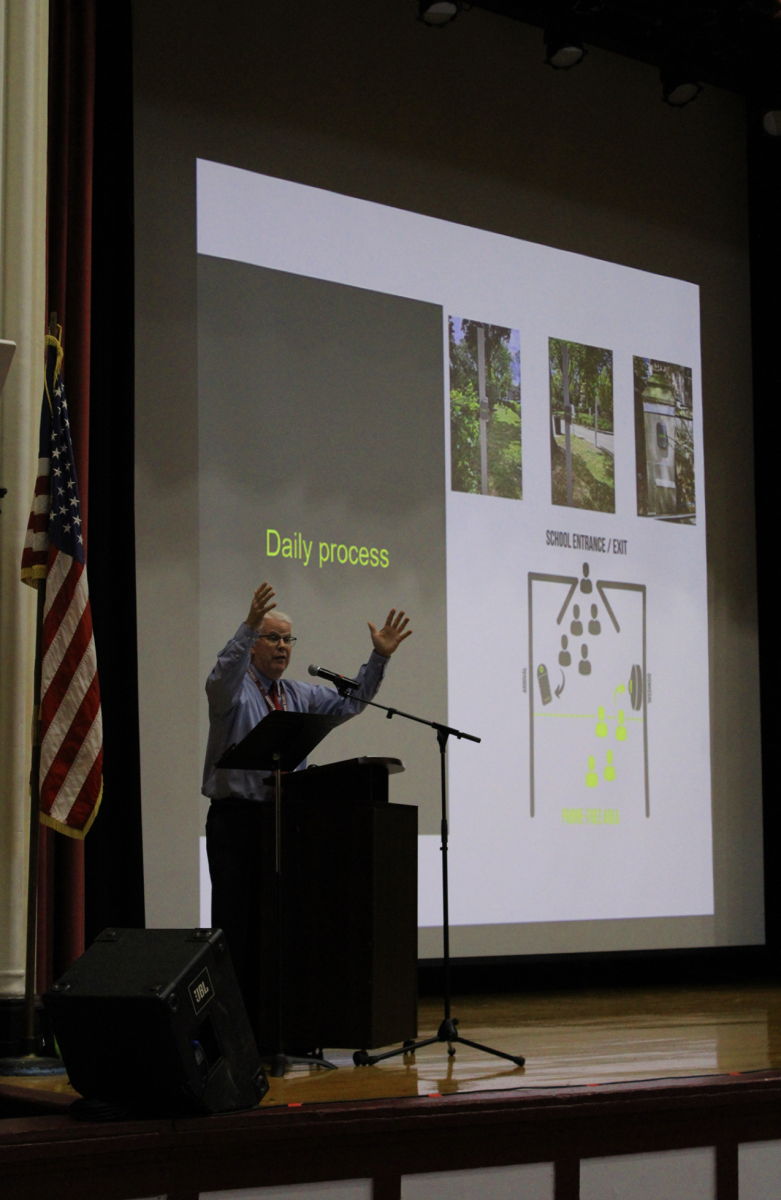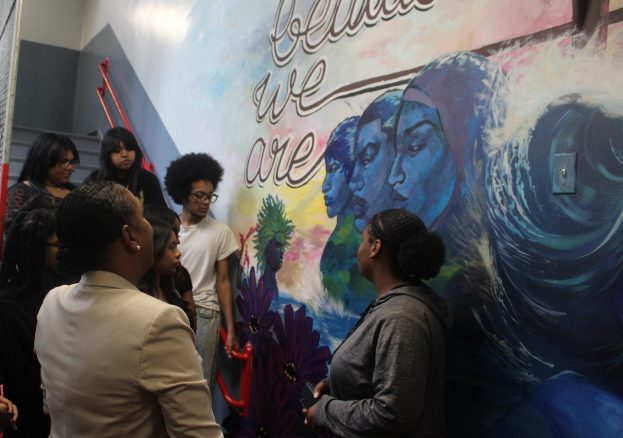From shoe racks to charging stations, teachers have long since been making efforts to keep phones out of students’ hands. After all, the place of cellphones in schools, particularly classrooms, has been a difficult, contentious issue since their advent, and especially since the outbreak of COVID-19, when students were dependent on their phones and devices to absorb class material. Ever since then, many argue that having them in class helps to take notes and pay attention, while others argue the opposite, and say that the cons of welcoming these devices into the classrooms are far greater than any of the pros.
One of the greatest concerns of teachers is the addictive, tempting design of social media apps. To Ms. Beresford, a Global History teacher and one of many that does not allow phones for note-taking, letting students use them would pose too much of a temptation to use other apps. Ms. Beresford’s 23 years of experience teaching high school students have shown her the impact of phones is “too great”. “I don’t think it’s a good idea,” she said, “Primarily because there are many other methods of note taking. You could use a Chromebook, or a laptop. I think phones are way too tempting.”
Ms. Boylan, an English teacher who has been teaching for 25 years, falls on the more temperate side of the scale, believing phones to be more of a tool than anything. “I do find them to be distracting,” she said, “Using them as a tool, I have no problem with it. But using it in lieu of doing classwork, that’s a problem. In the beginning, I was one of the first to use the shoe rack method.” In her opinion, phones can be used to take notes and complete classwork, as long as some method of control is implemented. She believes that both the teachers and the students have to adapt to the current technological climate, rather than completely eliminate them from classrooms. “I think it is a double-edged sword,” she explained.
The opinions of students on allowing phones are somewhat mixed. One student, Isabella Irizarry, a sophomore in the IB program, is largely in favor of them. When asked whether or not it was a productive method of note-taking, she had this to say: “I definitely do think it’s effective. I’ll take a picture of the notes on the board and rewrite it.” She believes that, while phones can definitely be distracting, teachers should take measures to allow them in the classroom, and make them accessible to students. But out of multiple students surveyed, she’s the only one that reported going back to those notes later. Many felt that they only took a photo of the board just because phones made it “convenient”, in the words of Angelica Cruz. She continued, saying that “It’s just more convenient than asking the teacher to keep it on longer,” she said. On the topic of addiction, she had this to say: “Yeah, it’s too tempting because there are a lot of apps to check.”






